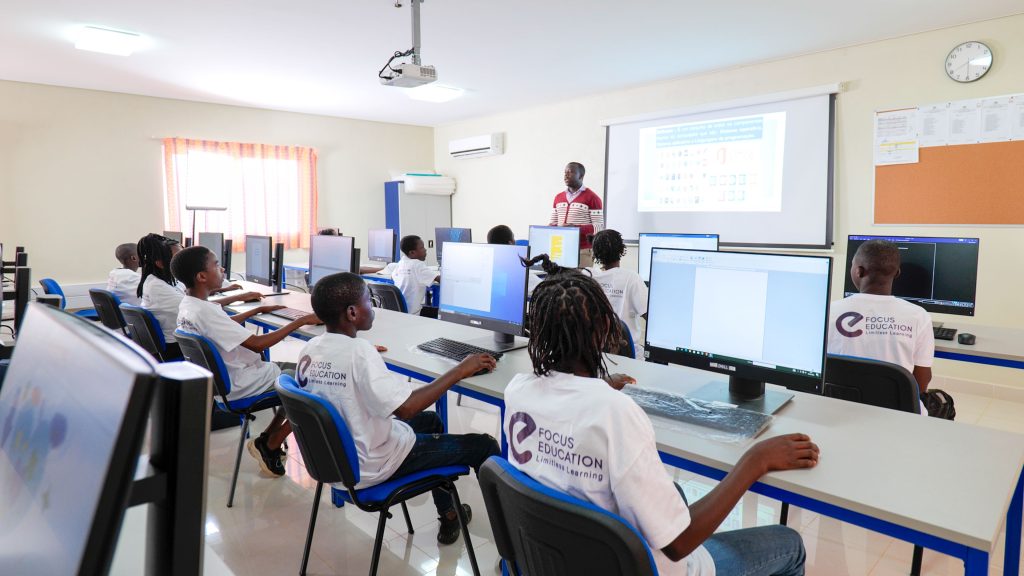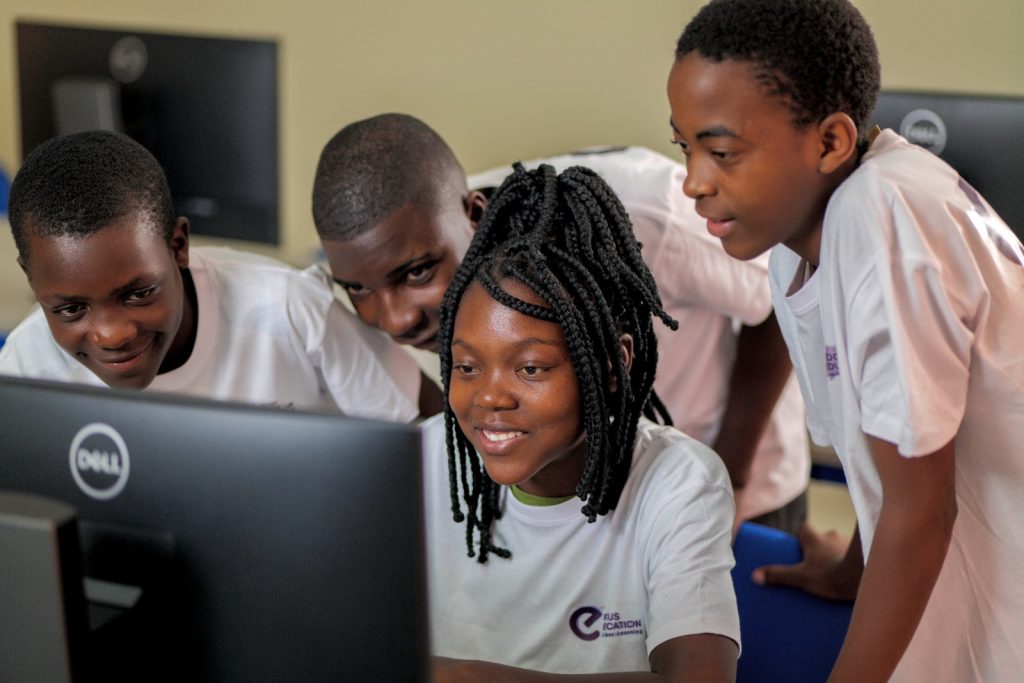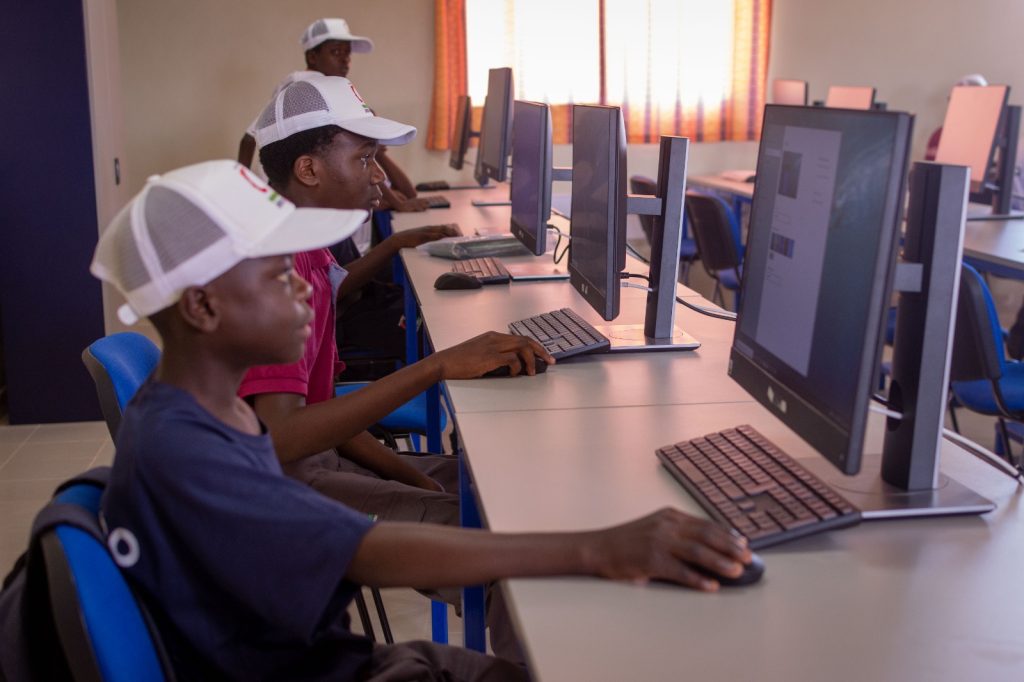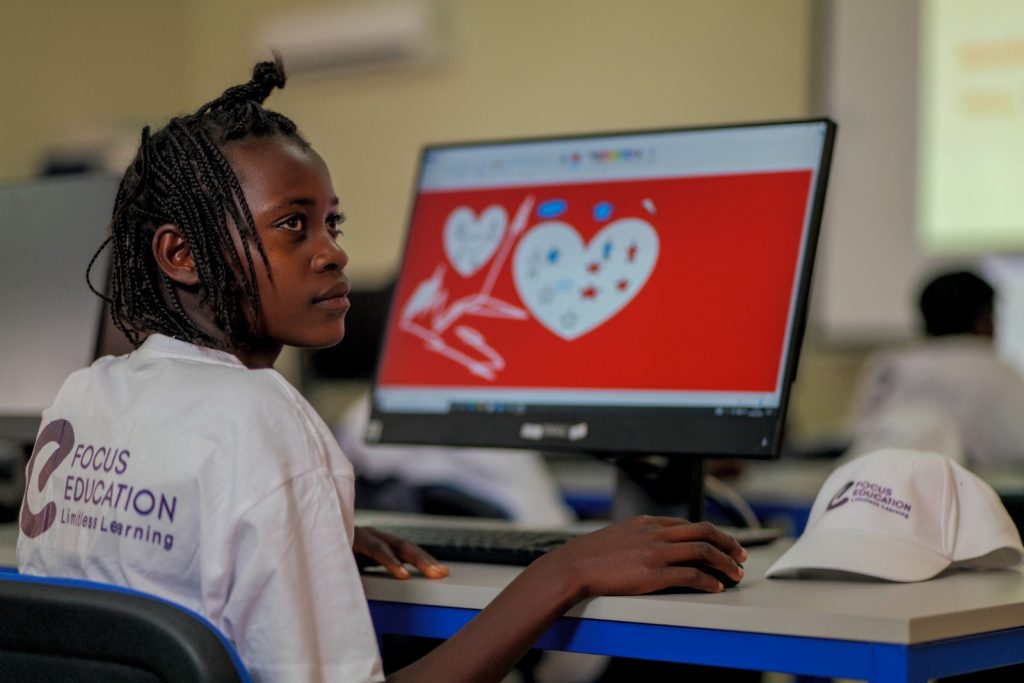In the month we recognize the potential of youth as a driving force for sustainable development and a guarantee of continuity for the future of humanity, it is impossible not to highlight the importance of Africa, considering that this is the region with the highest rate of the youngest population in the world.
According to the UN, Africa with a rich and diverse demography, which represents a unique advantage, holds an unparalleled potential to drive global development. More than half of the world’s population is under the age of 30 and the African continent is expected to reach 2050 with the mostly young population, containing at least 1/3 of all 15- to 24-year-olds in the world.
In this region, education is an essential pillar to empower young people and make them agents of transformation. By providing quality education, in line with the demands of current trends, it is possible to equip young people with the knowledge, critical thinking skills, and the necessary values to face complex challenges and promote meaningful change.
In recent years, significant advances have been observed regarding information and communication technologies, particularly in terms of the growth of the internet connection networks that will reduce disparities within and between countries on the African continent. The availability of digital technologies eliminates the constraints of time and space, revolutionizing the traditional learning process.
In a world that is constantly evolving, digital literacy emerges as an imperative factor for economic growth, innovation and social progress; and the development of digital skills becomes critical to professional success as we approach 2030.
The digital revolution is an imminent reality that will shape the future of generations to come. Young people have been increasingly involved with digital technologies, demonstrating remarkable proficiency and potential in adopting technology tools, creating a window of opportunity for combating unemployment and developing innovative solutions to mitigate local problems and create social change within the continent.
According to a World Bank forecast, by 2030 there will be 230 million digital jobs in Sub-Saharan Africa, which will require intermediate or advanced digital skills, as well as, basic financial and digital literacy for all.
In Angola, we have witnessed an evolution in education and digital transformation, leading to a brighter future for young people, who, when equipped with the knowledge and necessary opportunities for their development, position themselves as a fundamental driving force in national and global progress.
Growing digitalization has transformed the approach to learning, allowing access to a variety of educational tools. The country has made sustained investments in the innovation and modernization of educational institutions, in the implementation of technical and professional training programs, geared towards new digital trends.
These initiatives, in addition to improving access to quality education, also prepare the new generation to capitalize on the opportunities presented by the digital economy, within a more dynamic and inclusive environment.
At Mitrelli, we believe that education should be an engine for creativity, innovation and entrepreneurship, as promoters of ethical and sustainable practices. For us, empowering young people is essential to take better advantage of the benefits offered by the new digital age, as well as, to implement strategies that develop digital skills and support the full economic and social inclusion of all young people.
Encouraging digital literacy requires a multifaceted approach from educational institutions, governments, public and private organizations.
It is crucial to invest in comprehensive digital skills training programs and promote access to connectivity in an equitable manner. In addition, it is essential to adopt a gender-sensitive approach to digital skills development, as empowering young women helps to bridge the gender gap, while also enabling the promotion of a more prominent and dynamic economy.
Our Education and Culture sector, in collaboration with public and private institutions, has created the conditions for the training of young people to access the job market, through initiatives that integrate vocational and professional training (TVET). For example, the training centers and Youth Villages, and the implementation of projects characterized by technology and innovation such as the Luanda Science Center.
This Center, which occupies a total area of around 20,000 m², stands out as a reference infrastructure for technological and scientific progress and innovation. Its main objective is to promote the acquisition of knowledge in various disciplines and boost digital skills to facilitate technological development and the growth of society in general, with a special focus on young people.
This month, as we commemorate International Youth Day, under the theme “From Clicks to Progress: Youth’s Digital Pathways for Sustainable Development”, we recognize that only through the digital education and empowerment of young people is possible to achieve SDG 8 (Sustainable Development Goal 8). To build an inclusive and digitally empowered Africa, it is critical to ensure that all young Africans have the skills and tools needed to be key participants of the new world digital age.
Mitrelli, through its Education and Culture Sector, as a company operating in Africa and for Africa, is focused on the design and implementation of projects that contribute to a better tomorrow for the present and future generations, and therefore, digital solutions take a prominent place in the universe of projects we develop.
Article written by António Cruz, Mitrelli Education Sector Director, published in Economia & Mercado




